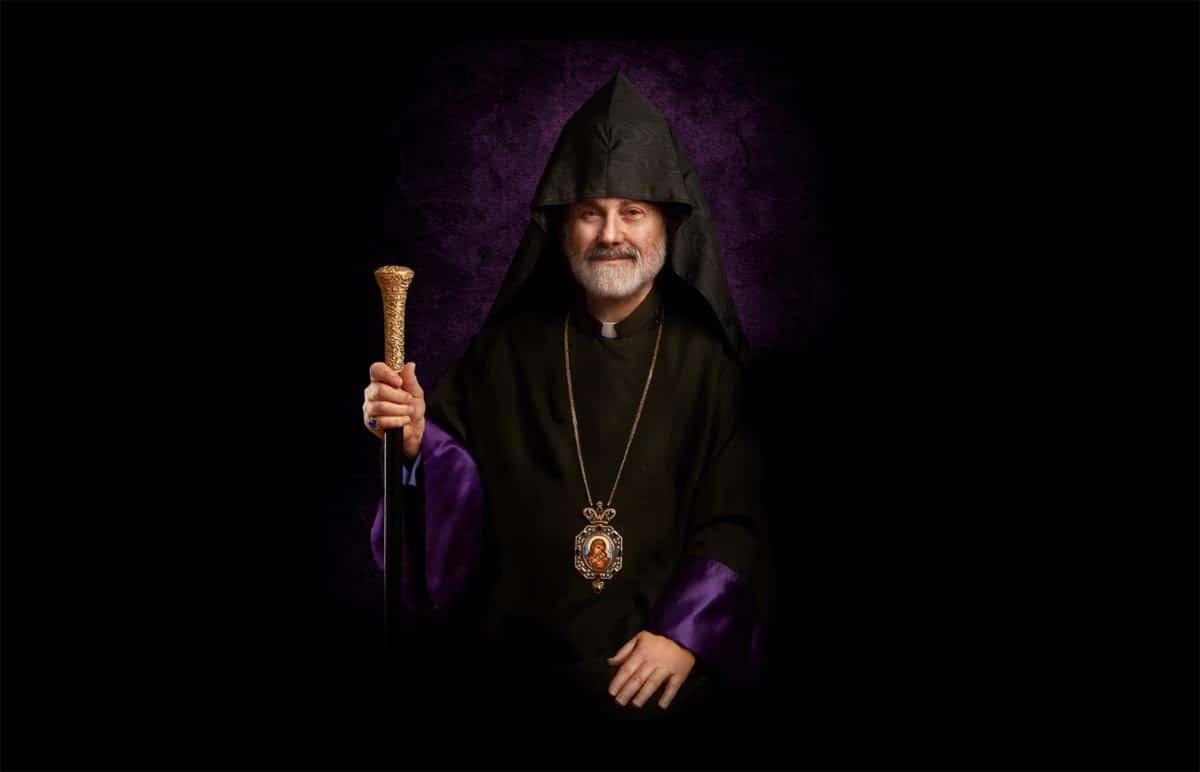THE WIDOW’S TWO COPPER COINS

The Prelate’s Sermon, October 9
Today, on the fifth Sunday of the feast of the Elevation of the Holy Cross, the Gospel reading is from the Gospel of Saint Mark 12:35-44. The first part (vv. 35-37) is related to Messianic teaching; the second part (vv. 38-40) is a reproach of the Scribes’ hypocrisy; and the third part (vv. 41-44) is praise of a widow’s modest contribution. The Evangelist narrates that “Jesus sat down opposite the treasury and watched the crowd putting money into the treasury. Many rich people put in large sums. A poor widow came and put in two small copper coins, which are worth a penny. Then He called His disciples and said to them, “Truly I tell you; this poor widow has put in more than all those who are contributing to the treasury. For all of them have contributed out of their abundance; but she out of her poverty has put in everything she had, all she had to live.” I would like to share a few thoughts derived from this passage.
- The presence of our Lord Jesus Christ in the Temple is a solid testimony that He respectfully visited the Temple. At the age of twelve, He had solemnly told His mother, “Did you not know that I must be in my Father’s house?” (Lk 2:49). Thus, the Temple or the synagogue were inseparable parts of His earthly life and mission. This fact is the best instruction to all those who debate whether they should or should not attend church for praying because in an opposite example, Jesus has taught, “when you pray, go into your inner room, close the door and pray for your Father” (Mt 6:6). The distinction is between the time for private prayer and the time to join the community in public prayer.
- As much as Jesus was teaching in the Temple, He was also watching every aspect in it. This is a merit of a true leader who is aware and oversees everything. Like a captain who is in full control of the ship entrusted to him, our Lord introduces us with a phenomenon which is part of liturgical life in the assembly of God, by highlighting a gesture which would not normally catch the interest of many people.
- Noticing the difference between the contributions from rich people and from the poor widow is indeed very peculiar. As human beings, we are attracted by majesty and great acts of splendor. God sees everything, big or small, grand or humble. He sees not only the visible things but the invisible things as well. He reads our hearts and minds (Ps 7:9). Nothing is covered from His sight. All is magnificent.
- The poor widow’s contribution, no matter how small the actual amount, was praiseworthy nonetheless. She may have thought that contribution was totally absurd in comparison with what others were giving toward the needs of the Temple, and therefore, she could excuse herself from doing anything. Yet humbly, she presented her gift.
- The All-seeing and Merciful Lord is not fooled by numbers. Many of the people decided to contribute a determined percentage out of their total wealth but did not experience a significant dent in their lifestyle. In great contrast, the poor widow put 100 percent of what she had, “all she had to live on,” and yet trusted in the Lord that He would provide for her even as she tried to relieve the suffering of others. While the wealthy were able to donate large figures, the donation from the widow figured much larger in the judgment of the Lord. Indeed, God’s ways in everything are different from our ways, just as His thoughts are different from our thoughts (Is 55:8-9).
- The gesture of our Lord Jesus Christ is exemplary for all generations whether believers or non-believers, atheists, or agnostics, by acknowledging not only major but minor positive achievements, behavior and ideas. By doing so, first we express our noble personality, then, we encourage all those with whom we encounter, whether family members, neighbors, colleagues and even strangers. The power of the divine is manifested in small things: a kind word, a gracious gesture and a welcoming smile go far beyond our expectations.
Having been educated by this simple yet wonderful didache in action, taught to us by the Almighty Lord who expects from us and appreciates even insignificant things, let us be thankful to Him and never be tempted to avoid doing little things because we are not entitled or called upon to achieve greater things. For God looks quietly into the heart and is not impressed by outward boasting, and accordingly, God appreciates and rewards not only within this temporary existence but through eternal life.
With this understanding let us always seize each opportunity to do something good for one another, regardless of its size, and praise the All-Holy Trinity. Amen.
